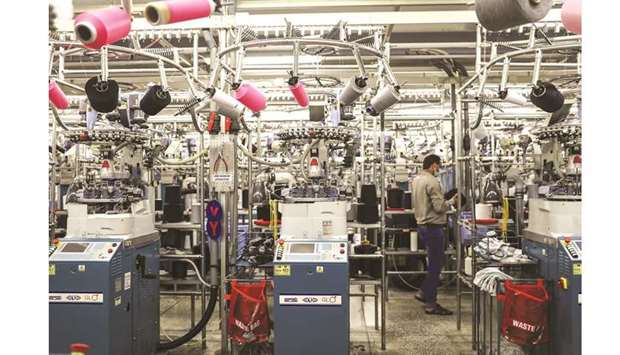The International Monetary Fund (IMF) asked Pakistan to increase buffers in order to absorb unexpected internal and external shocks to the economy as it faced criticism from parliamentarians for designing a programme that caused difficulties for the people and businesses.
The IMF has also ruled out any revision in its programme targets with Pakistan and generally appreciated the progress shown by the authorities towards stabilisation of macroeconomic indicators and their initial encouraging results.
An eight-member IMF delegation, led by Director for Middle East and Central Asia Jihad Azour and accompanied by mission chief to Pakistan Ernesto Ramirez-Rigo, had hectic meetings, including one with Prime Minister Imran Khan, and was encouraged by his commitments to push forward economic and institutional reforms as envisaged in the Fund programme.
The IMF team held meetings with various economic managers, including Adviser to the Prime Minister on Finance Dr Abdul Hafeez Shaikh, State Bank of Pakistan governor Dr Reza Baqir and members of the National Assembly’s Standing Committee on Finance.
At a joint news conference with Dr Shaikh in the evening, Azour said the IMF staff mission would visit Pakistan by the end of October or early November for the first quarterly review under the $6bn Extended Fund Facility, adding that things were moving in the right direction and there was no need to reset the targets.
The NA standing committee members criticised the Fund for designing a programme that had created challenges to the economy and caused difficulties for the people and raised questions over inflation, currency devaluation, interest rates and revenue targets.
They regretted that Dr Shaikh abstained from the committee meeting and his seat was kept vacant during discussions as the Fund mostly listened to their concerns and defended the programme parameters that the Fund said were designed by the Pakistan government and got approved from parliament.
PPP’s Nafisa Shah said the IMF team was told that the Fund and the Financial Action Task Force had compromised Pakistan’s sovereignty by curtailing the China-Pakistan Economic Corridor.
He said Pakistan should “increase the level of buffers to be ready to address shocks that will come to the system due to domestic or external reasons” because there could be uncertainties along the way like nobody knew that weekend things would change so dramatically in the Middle East.
Dr Shaikh said there was nothing extraordinary about the visit of the IMF delegation that noted good progress on macroeconomic, fiscal and institutional reforms as all targets and benchmarks were being fulfilled in a good manner.
Azour said the authorities had put the Fund programme on a good footing and his MECA department was impressed by the progress on a number of reforms being carried out by the government. He said Pakistan needed to provide additional independence to the State Bank to give more credibility to the monetary policy, adding that other institutional reforms were equally important to make the economy competitive.
In this regard, he specifically mentioned the energy sector circular debt that remained a “big source of uncertainty”.
He said that while initial moves on the reforms were encouraging, it was important to keep focus and energy to help stabilise the economy and increase exports in order to create more jobs.
At the same time, he said there was no need for revision in revenue targets as the collection for the first two months increased by 15%, but the Federal Board of Revenue needed to move quickly towards automation, improve tax services and make taxes fairer. Chairman of the NA panel Asad Umar said its members had raised a number of questions and expressed concerns, but the IMF was generally satisfied with the progress achieved by Pakistan so far.

An employee monitors machinery in the knitting section of an Interloop Ltd facility in Faisalabad, Pakistan. The International Monetary Fund has ruled out any revision in its programme targets with Pakistan and generally appreciated the progress shown by the authorities towards stabilisation of macroeconomic indicators and their initial encouraging results.
